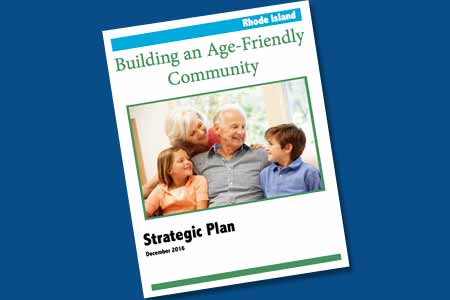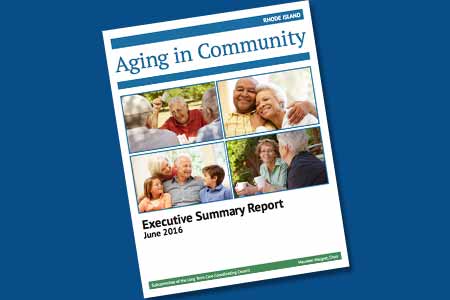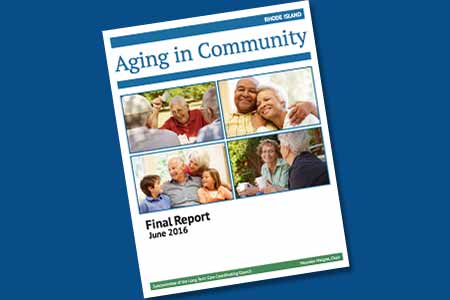— Rhode Island Research & Reports —
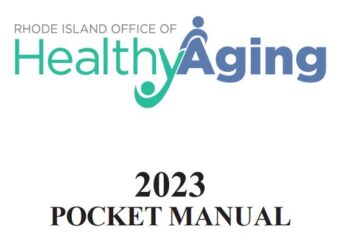
OHA 2023 Pocket Manual
Questions about what resources are available for Older Adults and Adults with Disabilities? OHA developed a handy guide to help navigate the abundance of community-based services and programs in the state.
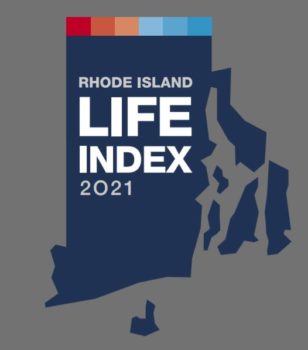
2021 RI Life Index
Health is so much more than what happens within the healthcare system. We know health outcomes do not rest solely on medical interventions, but also greatly depend on meeting basic human needs.
Blue Cross & Blue Shield of Rhode Island (BCBSRI) and the Brown University School of Public Health are proud to present the third annual RI Life Index, which captures Rhode Islanders’ perceptions of social determinants of health and well-being. For BCBSRI, the Index serves as a driver of our vision to passionately lead a state of health and well-being across Rhode Island. We believe the Index will help us to build healthier communities throughout Rhode Island.
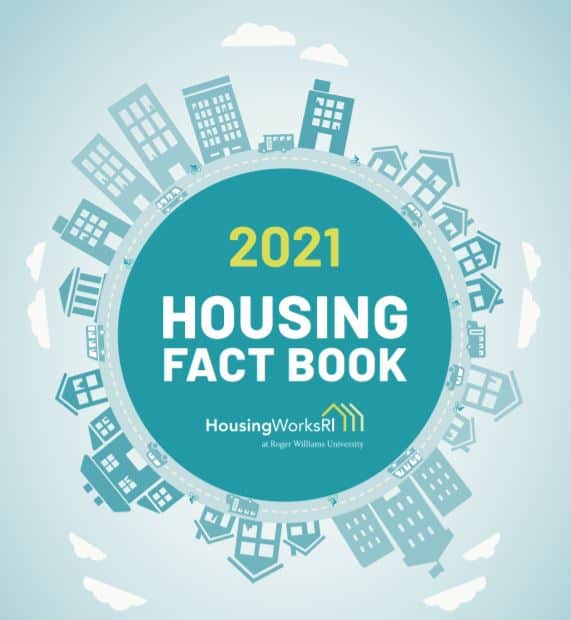
2021 Housing Factbook
The 2021 Housing Fact Book released annually by HousingWorks RI (HWRI) at Roger Williams University takes an expanded look at the intersection between housing and health, and uses the framework of the Social Determinants of Health (SDOH) to explore how healthy, affordable homes connect Rhode Islanders to the opportunity for overall wellbeing.
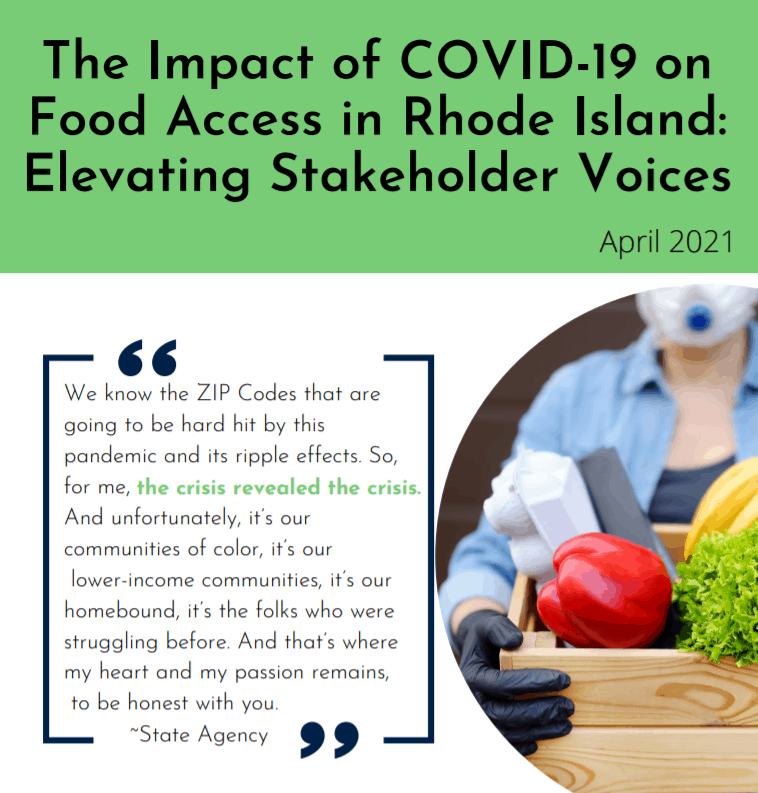
The Impact of COVID-19 on Food Access in Rhode Island: Elevating Stakeholder Voices
This report captures the successes and challenges that 25 Rhode Island food access stakeholders experienced during the pandemic based on virtual key informant interviews conducted during September-November 2020. It culminates with a call to action informed by their recommendations. We hope that this report stimulates conversations around how we can work together to effectively respond to the food access needs of the communities we serve.
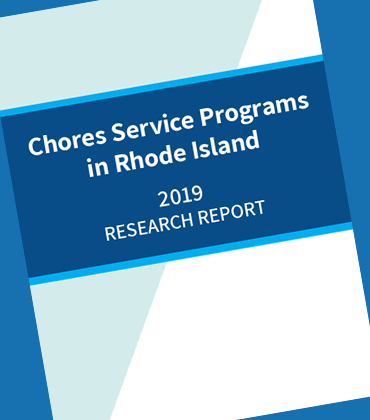
Chores Service Programs in Rhode Island
In 2015, focus groups were conducted statewide to inform the development of the 2016 Aging in Community Report. Among the key findings of those interviews and conversations with older adults across Rhode Island was the need for support services that would allow them to remain in their own homes. Those supports include affordable help with homemaker and home repair/maintenance chores for older adults in owner-occupied homes. Subsequent to the release of that report, Age-Friendly Rhode Island’s “Supports to Remain at Home” working group recognized a the need to develop a central resource for service providers when searching for home chores help for older adults living at home. Workgroup members felt the first step in addressing the situation was to create a resource analysis that identifies the location of existing home chore programs and summarizes how they serve older adults.
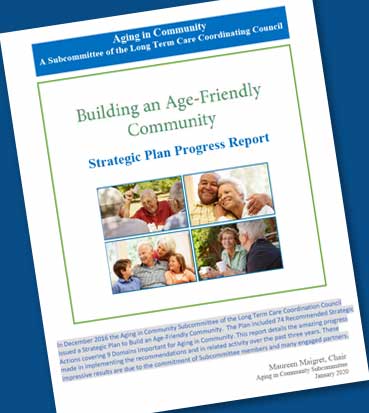
Aging in Community Subcommittee Strategic Plan Progress Report Details Significant Progress Made Towards Building an Age-Friendly Rhode Island
In December 2016, the Aging in Community Subcommittee Issued a Strategic Plan encompassing 74 recommended actions related to nine interconnected domains essential to healthy aging in community.
This progress report highlights the momentous progress made in implementing the Strategic Plan since its inception three years ago. Of the Plan’s 74 recommended actions, an impressive 78% have either been implemented or are currently in progress. These significant achievements to promote opportunities for older Rhode Islanders to age in the communities of their choice result from intentional collective legislative and administrative advocacy in conjunction with efforts by workgroups organized by Age-Friendly RI.
Three Reports, One Objective
To successfully build an age-friendly community, it is vital to understand and anticipate the changes, challenges and opportunities facing Rhode Islanders as they age. This work began in October 2014 with the formation of the Aging in Community Subcommittee of the Long Term Care Coordinating Council, which began gathering information about aging-related issues.
The Final Report of the work, as well as the Executive Summary - which outlines the research, focus group findings and interviews with key service providers - offers a clear picture of where we are and where we are going. All of this data provided the basis for the Strategic Plan. The Age-Friendly RI coalition of stakeholders is now working to implement the plan.
Acknowledgements
Funding to support the focus groups was partially provided by the Rhode Island Division of Elderly Affairs, with funds from the Older Americans Act, to assist in the development of Rhode Island's State Plan on Aging and in part by grant from the Tufts Health Plan Foundation.
Strategic Plan
Rhode Island's Strategic Plan summarizes goals and objectives, and describes the strategic actions needed to build an Age-Friendly Rhode Island.
This plan will be continually updated as the Age-Friendly Rhode Island coalition progresses.
(24 pages)
Executive Summary
Rhode Island's Executive Summary Report provides a quick overview of the work of the Aging in Community Subcommittee of the Long Term Care Coordinating Council.
This report summarizes research on the needs of older Rhode Islanders, gaps in services, and recommended strategies to promote an Age-Friendly Rhode Island.
(12 pages)
Full Report
Rhode Island's Full Report contains the complete findings of the Aging in Community Subcommittee of the Long Term Care Coordinating Council.
This report includes a summary of ten focus groups conducted with older adults across the state of Rhode Island. The report includes a summary of gaps in services to assist older adults and research on best practices and details on the recommended strategies to promote an Age Friendly Rhode Island.
(62 pages)

